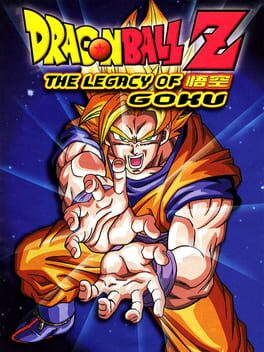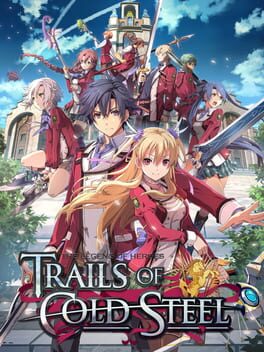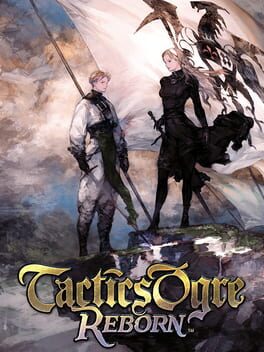PaperCasey64
It's a given that this game is bad - what's interesting to me is that it exists at the precise cross-section of the graph of time investment and fun.
If it was one centimeter worse, this game would be unplayable to me. If it were 15 minutes longer, I would have dropped it before the end - and it is precisely bad enough to be interesting, but not appalling. The thinnest passing margin of all time. Associate's Degree with a D+ transcript, but a graduate all the same.
Somebody, somewhere, cared when they made this game, as made evident by how good the sequels are.
If it was one centimeter worse, this game would be unplayable to me. If it were 15 minutes longer, I would have dropped it before the end - and it is precisely bad enough to be interesting, but not appalling. The thinnest passing margin of all time. Associate's Degree with a D+ transcript, but a graduate all the same.
Somebody, somewhere, cared when they made this game, as made evident by how good the sequels are.
Heartbreaking: gamer thought 70-hour JRPG he put on a pedestal for 8 years was just "alright."
An arduously long game packed to the gills with dialogue and school simulations that feel like they add very little. Compared to the tight and witty dialogue from the Sky trilogy, and to a lesser extent Crossbell, this game's dialogue is, generously, 20% characters being lecherous toward high school girls. Feelings of comfort on that aside, that's a LOT of dialogue which is often your cast getting an anime sweat drop, then saying, "Well some things never change." I struggle to think of a single line of dialogue said by Angelica or about Emma that didn't make me sigh.
The setting is wonderful - Erebonia is a great region to explore and the political intrigue (and this game's ending especially) imply a promising future for the series, if the writing becomes more restrained.
The gameplay is also a marginal improvement still above Crossbell, featuring a more intuitive and rewarding Quartz system. I love to fidget in menus to get a small increase in power, and this game gave me tons to play with in that regard. My only complaint about this matter is that I found very few new spells after Chapter 5, which meant 20+ hours without a meaningful change to my approach to gameplay. Your mileage may vary depending on how much you value tinkering with builds as you play.
Overall, I'm saddened to say I don't recommend this game on its own, and I find it a poor showing from a series and developer I otherwise have a lot of faith in. I hope that when I play the sequel, I feel that love come back again.
An arduously long game packed to the gills with dialogue and school simulations that feel like they add very little. Compared to the tight and witty dialogue from the Sky trilogy, and to a lesser extent Crossbell, this game's dialogue is, generously, 20% characters being lecherous toward high school girls. Feelings of comfort on that aside, that's a LOT of dialogue which is often your cast getting an anime sweat drop, then saying, "Well some things never change." I struggle to think of a single line of dialogue said by Angelica or about Emma that didn't make me sigh.
The setting is wonderful - Erebonia is a great region to explore and the political intrigue (and this game's ending especially) imply a promising future for the series, if the writing becomes more restrained.
The gameplay is also a marginal improvement still above Crossbell, featuring a more intuitive and rewarding Quartz system. I love to fidget in menus to get a small increase in power, and this game gave me tons to play with in that regard. My only complaint about this matter is that I found very few new spells after Chapter 5, which meant 20+ hours without a meaningful change to my approach to gameplay. Your mileage may vary depending on how much you value tinkering with builds as you play.
Overall, I'm saddened to say I don't recommend this game on its own, and I find it a poor showing from a series and developer I otherwise have a lot of faith in. I hope that when I play the sequel, I feel that love come back again.
2009
Pulled this out of a box for the first time since 2011, swapped the CR 2032 battery out with a $4 replacement from CVS, and it works like new. I used PKSM on a modded 3DS to get the WiFi event routes, and am currently using the spikey-eared Pichu (who does retain the special sprite in the PokeWalker) to get the Pikachus from Yellow Forest who know Surf and Fly :)
2022
This is a very good version of a very good game. It took me about 70 hours to complete one route, although I spent a lot of time on optional content that may not feel as valuable to every player. Some strategy RPGs make me feel anxious about the long-term repercussions of my decisions, such as leveling a character poorly or making a story decision I regret - this game has plenty of mechanics to mitigate the problems you may run into. It is very difficult to put yourself into a position so undesirable that you wouldn't want to proceed with your save file, which is a worry I had after being softlocked in Final Fantasy Tactics.
Much of the early game feels like a dream-come-true as it pertains to character customization, clarity of mechanics, and moment-to-moment gameplay. Characters feel unique and useful, experimentation is encouraged, and clever planning is rewarded. Notably, recruited monster creatures are good enough to use for the entire game, a rare treat in my experience with tactical RPGs.
The final chapter (Chaos route in my case) felt like it dragged several hours too long, and dozens of fights with nameless enemies litter the final act when it would feel nicer to get on with the plot at that point. However, I did go out of my way to recruit a lot of side characters, including Deneb in her unique Wicce class, which added a lot of optional length to my playtime, and you may not find this necessary in your playthrough.
After clearing the game, you'll unlock a mechanic which lets you return to previous events which alter the plot. This way you can revise your decisions before the post-game, or see other routes without needing to do another playthrough. I did not use this mechanic at time of writing, but reading about it makes it seem like I would have had more fun if I didn't spend so much time on optional content in Chapter IV, and instead saved it for the post-game.
Much of the early game feels like a dream-come-true as it pertains to character customization, clarity of mechanics, and moment-to-moment gameplay. Characters feel unique and useful, experimentation is encouraged, and clever planning is rewarded. Notably, recruited monster creatures are good enough to use for the entire game, a rare treat in my experience with tactical RPGs.
The final chapter (Chaos route in my case) felt like it dragged several hours too long, and dozens of fights with nameless enemies litter the final act when it would feel nicer to get on with the plot at that point. However, I did go out of my way to recruit a lot of side characters, including Deneb in her unique Wicce class, which added a lot of optional length to my playtime, and you may not find this necessary in your playthrough.
After clearing the game, you'll unlock a mechanic which lets you return to previous events which alter the plot. This way you can revise your decisions before the post-game, or see other routes without needing to do another playthrough. I did not use this mechanic at time of writing, but reading about it makes it seem like I would have had more fun if I didn't spend so much time on optional content in Chapter IV, and instead saved it for the post-game.



